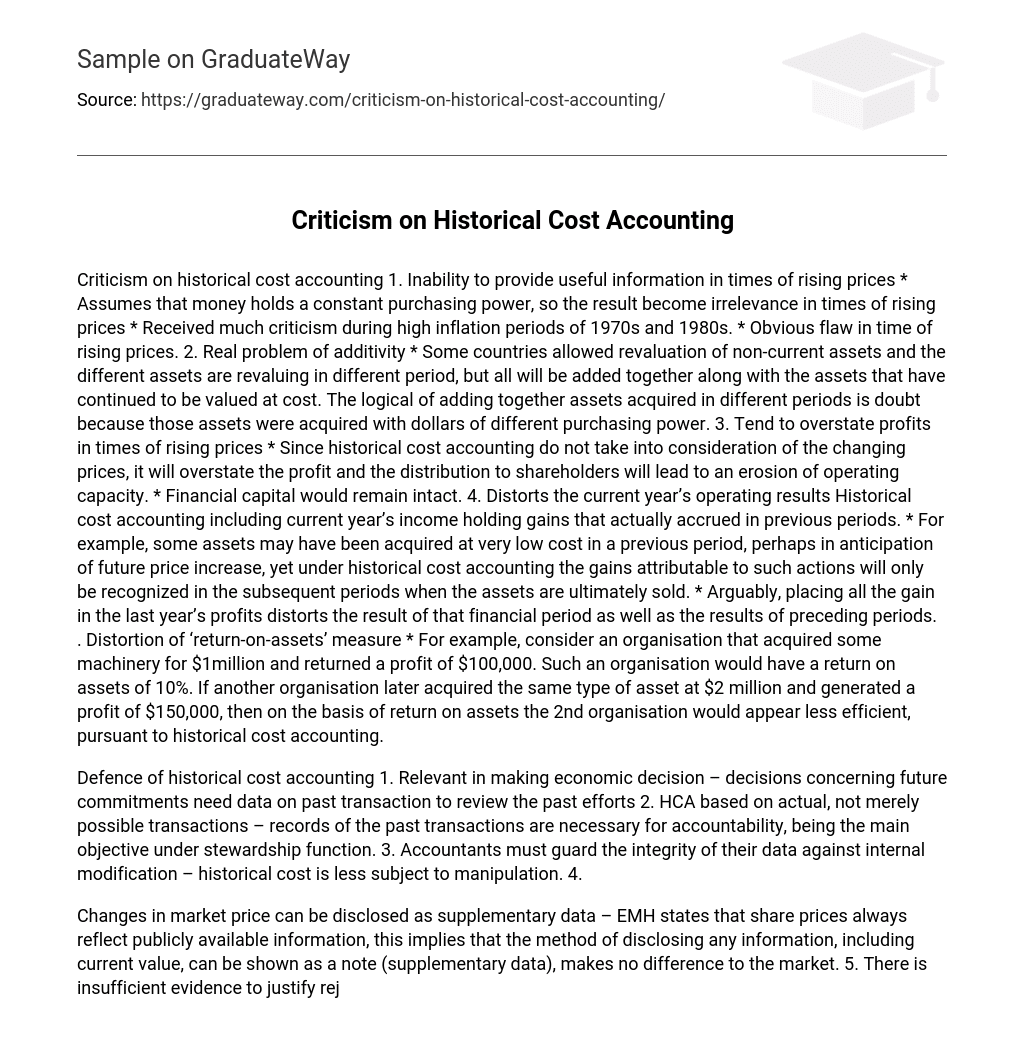Criticism on historical cost accounting 1. Inability to provide useful information in times of rising prices * Assumes that money holds a constant purchasing power, so the result become irrelevance in times of rising prices * Received much criticism during high inflation periods of 1970s and 1980s. * Obvious flaw in time of rising prices. 2. Real problem of additivity * Some countries allowed revaluation of non-current assets and the different assets are revaluing in different period, but all will be added together along with the assets that have continued to be valued at cost. The logical of adding together assets acquired in different periods is doubt because those assets were acquired with dollars of different purchasing power. 3. Tend to overstate profits in times of rising prices * Since historical cost accounting do not take into consideration of the changing prices, it will overstate the profit and the distribution to shareholders will lead to an erosion of operating capacity. * Financial capital would remain intact. 4. Distorts the current year’s operating results Historical cost accounting including current year’s income holding gains that actually accrued in previous periods. * For example, some assets may have been acquired at very low cost in a previous period, perhaps in anticipation of future price increase, yet under historical cost accounting the gains attributable to such actions will only be recognized in the subsequent periods when the assets are ultimately sold. * Arguably, placing all the gain in the last year’s profits distorts the result of that financial period as well as the results of preceding periods. . Distortion of ‘return-on-assets’ measure * For example, consider an organisation that acquired some machinery for $1million and returned a profit of $100,000. Such an organisation would have a return on assets of 10%. If another organisation later acquired the same type of asset at $2 million and generated a profit of $150,000, then on the basis of return on assets the 2nd organisation would appear less efficient, pursuant to historical cost accounting.
Defence of historical cost accounting 1. Relevant in making economic decision – decisions concerning future commitments need data on past transaction to review the past efforts 2. HCA based on actual, not merely possible transactions – records of the past transactions are necessary for accountability, being the main objective under stewardship function. 3. Accountants must guard the integrity of their data against internal modification – historical cost is less subject to manipulation. 4.
Changes in market price can be disclosed as supplementary data – EMH states that share prices always reflect publicly available information, this implies that the method of disclosing any information, including current value, can be shown as a note (supplementary data), makes no difference to the market. 5. There is insufficient evidence to justify rejection of HCA – no persuasive empirical evidence indicates that current cost or exit price accounting information is more useful than historical cost information.





